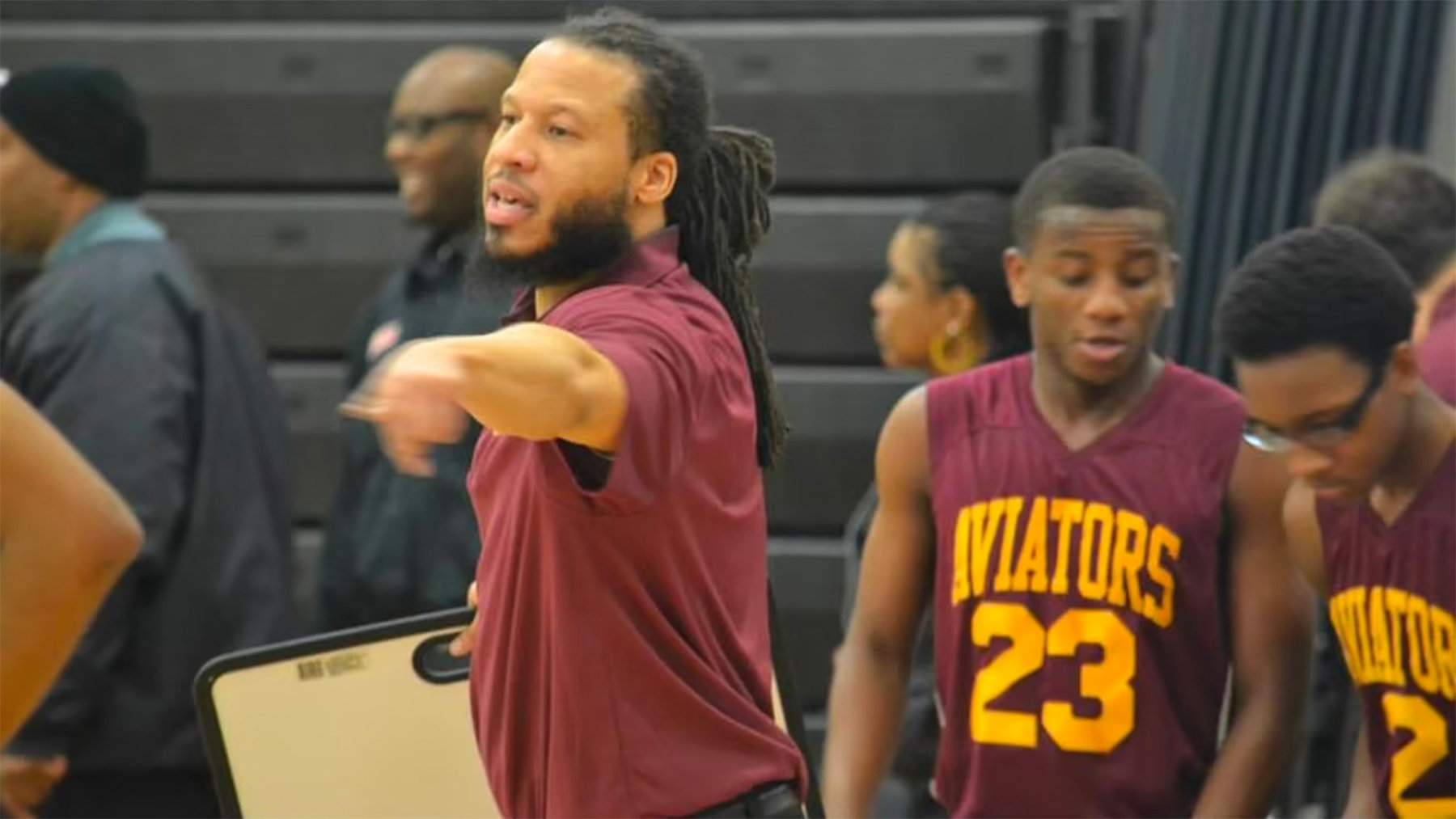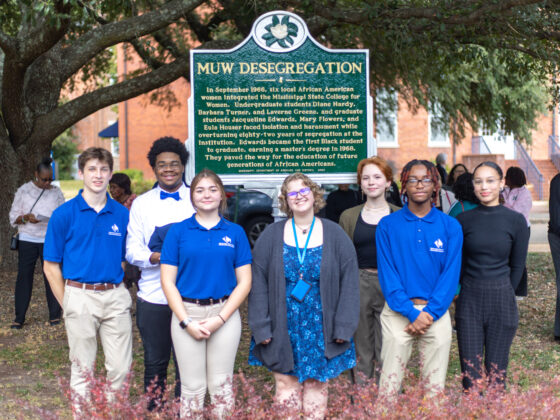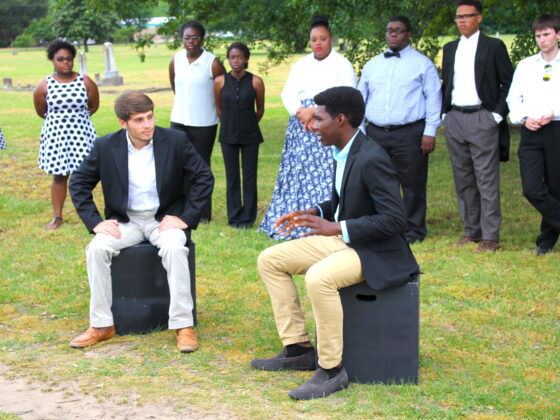Background: this story on Camden County High School, in Georgia, and its “career technical” academies, followed by this from readers; plus Deb Fallows on an elementary school for engineers, in South Carolina; and John Tierney on the Maine Marine Academy and related aspects of “vocational” education. Now more from readers:
1) “Vocational ed is ‘discriminatory.'” From a reader in New York City:
My late husband was for 36 years a teacher of physics at [a public high school in NYC]. According to him, vocational ed has been considered by the “educational establishment” to mean minority education, and thus is objected to by these high-minded folks. In other words, vocational ed is “discriminatory.”
Thus in NYS it has been phased out, and, in its place, all students are required to take, e.g., four years of science in order to graduate. Since most of them cannot handle physics or chemistry, the standards have been dumbed down in order to get a passing rate.
From a society that has traditionally prided itself on “equality,” we have become worse than Europeans about class differences….
So, yes, vocational ed is a good idea, and I notice in NYC that some high schools are offering “career” alternatives, thus avoiding the stigma of the phrase “vocational ed.”
2) Learning comes from doing things, as much as thinking about things. From a reader in Pennsylvania:
Thank you for your follow-up post about Camden County High School. It was more impressive than this article in Slate, which combines support for alternatives to college with the elitist assumption that the trades are mostly for below average students:
My grandfather, who trained workers during World War II for the war effort (including, I think, teaching some women to be machinists), complained about the prejudices of his fellow educators, who thought all bright students should go to college. He said the trades needed smart people. CCHS sounds like a model he would have approved of.
I certainly approve. I think education in hands-on work should begin in middle school with skills for daily living, including cooking, parenting and child development, sewing, wood shop, nutrition, sewing, gardening, personal finance, small gas engine maintenance and repair, house and apartment maintenance, art and music courses, basic auto maintenance, and health. Students should come out of middle school ready to tackle algebra and more advanced science classes and be pursuing a combination of academic preparation and hands-on study, but they should have learned enough life skills to feel they could cope.
A lot of problem-solving skills grow out of the experience of doing things rather than thinking about things. I’m convinced some of the students [the Slate author] is so dismissive about could find strengths if exposed to a wide range of skill-building classes in middle school, when students have a lot of energy, want to become more independent, and are wondering about their futures. The students who need remediation might not need quite as much assistance in life if they have life skills to help them cope with particular academic subjects that frustrate them.
Sure, we don’t all live in Lake Wobegon. But below average shouldn’t mean a student gets an inadequate education and critical trades shouldn’t be filled with below average students who became plumbers or carpenters. CCHS sounds like a good educational model for the school districts where the children aren’t all above average.
3) Fewer people with military experience means fewer people with practical skills. From a reader in the Southeast:
For many persons, vocational or technical training occurs in the military. Perhaps this accounts, partially, for the smaller number of persons with these skills, since proportionately, the number of persons with military technical training has gone down over the years.
Best, XXXX,
(Electronics Technician, US Navy, 1978-1984)
4) “I wish more parents would consider their sons’ and daughters’ gifts and interests.” From an administrator in a well-known East Coast public school system:
Having worked in the trades for many years prior to and during attending graduate school, I know how important it is to have opportunities for people who are not “college material.”
I wish more parents would consider their sons’ and daughters’ gifts and interests when they help them to plan their transition from high school. I also think that schools tend to be highly disrespectful of the intelligence, interests, and abilities of those students who are more geared toward tangible, practical work than to working with abstractions. When I worked in the trades I met some of the brightest people I’ve known. I also have friends who work in the trades and make much more money than I do, with a Ph.D.
I wish our education system would realize how very, very expensive it is for our society to continue to turn out students who are not equipped for the next step in their careers, whether that is college or work in the trades. Young people without a viable life plan, without a source of competency and pride, are very vulnerable to all sorts of potential downward spirals. Also, stagnant 20-somethings who end up settling into their parents’ basements don’t contribute much to the tax base, and don’t always maintain the best pro-social lifestyles.
Sorry for the excess verbiage here, I know I’m “preaching to the converted”. I just don’t seem to hear a whole lot about this here in the very much status-conscious [BOS-WASH East Coast] area. It really bothers me to see so much talent and potential wasted. I’ve seen a lot of really great kids who really didn’t get much of a shot at their dreams because of this bias.
5) My new favorite high school. From Dexter O’Connell in Detroit:
I work at Davis Aerospace Technical High School in Detroit. It is a Detroit public school. The most impressive aspect of the school is that there is a full, four year, aviation program that is a fully integrated part of our comprehensive curriculum.
Students can graduate with a pilot’s license, paid for by the Detroit Public Schools. Our Flight Instructor takes students with good grades and a demonstrated interest in flight, and trains them to be pilots. This year, we will graduate three licensed pilots from our class of 40 graduating seniors. Several others will have substantial flight hours to put towards a license at a later point.
Additionally, we have a full Airframe and Powerplant maintenance program. Students begin in a general maintenance course in ninth grade, and then choose Airframe or Powerplant in 10th and 11th grade, to study in depth. In senior year, they can continue studying and then take the certification test. I don’t know yet how many certified mechanics we’ll be graduating this year, but hopefully it will be many. Students can also take an optional aviation welding class.
This is all at a comprehensive high school, where aviation technical education is integrated into the curriculum. We also offer arts, Spanish (I’m the Spanish teacher, actually, and I’ve just begun work at Davis this school year) and a full slate of academic classes….
At the end of this year, our flight instructor is retiring, and some of our maintenance staff may as well, but hopefully our school will be able to find another instructor and take off again next year. This program is a critical one which provides high-quality education to students who can use it to get well-paying jobs that can’t be outsourced.
Here is a Detroit Public Schools video showing the school’s flight instructor and several of his students. Seriously, devote three minutes to watching this, and see if it doesn’t affect your view of the innovation and commitment underway in places or systems usually written off as struggling or troubled. I found every bit of this, from students and teacher in their respective ways, touching and encouraging.
Most of our students don’t come to our school to learn to fly or work on airplanes. There is still a sizable minority of students who come for that (I would imagine that we are one of the few DPS schools that draws kids from the suburbs for our program) including some who commute hours in each direction. However, the majority of our students now attend because we are a DPS school with small class sizes (my largest section is 24, our largest academic class right now is only 32, many classes are in the 15-20 student range) and a fairly good academic and disciplinary/behavioral reputation. There is little violence and there are no gangs or gang influence.
There is certainly more that can be done to strengthen the technical program going forward, and ensure that it’s appropriately funded, equipped, and staffed. We could probably do more to attract students. A big billboard over the 94 or the 75 freeways that said “Learn To Fly A Plane For Free In High School” would probably go a long way towards making our student body more sustainable and aviation-focused.
I do think, though, that what we do now is incredibly worthwhile for our kids, in both the aviation and the comprehensive parts of our school, and I think the blending of our dual curriculum is an important example of a possible way forward for other schools in other places.
Finally, about the picture at the top of this item:
Boys basketball is our only sport, and we had a school-record four wins this year! Our small student body means we usually don’t stand much chance against 1000-kid comprehensive schools, but the Aviators always play with heart.




